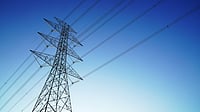Delhi’s air quality slipped from ‘poor’ a week ago to ‘very poor’ on Wednesday, raising alarms regarding its health impact. The air quality index (AQI) reached 354, which is categorised ‘very poor’ and considered dangerous as it can lead to respiratory illnesses for the general population, according to the central pollution control board (CPCB).
To address the concerns, the commission for air quality management (CAQM) invoked stage-II of the graded response action plan (GRAP) on Monday. Additionally, the Delhi government is also taking steps to reduce dust and vehicular pollution.
“Five new initiatives have been introduced in GRAP-II. Diesel generators will be regulated. The frequency of metros and buses will be increased. Parking costs will be increased so that people don’t use their cars for commuting,” Delhi environment minister Gopal Rai told ANI.
The AQI has six distinct levels to measure air quality. The number on the index starts from 0-500, and the higher the AQI, the worse the air. From 0-50 is classified as ‘good’, 51-100 as ‘satisfactory’, 101-200 as ‘moderate’, 201-300 as ‘poor’, 301-400 as ‘very poor’ and 401-500 as ‘severe’.
What is Stage-II of GRAP Invoked by CAQM?
CAQM, after considering the air quality scenario and weather/ meteorological conditions forecasts by the Indian meteorological department (IMD), invoked an 11-point action plan under stage-II of GRAP. It includes mechanical or vacuum sweeping and water sprinkling of the identified roads on a daily basis, strict inspections for enforcement of dust control measures, ensuring uninterrupted power supply to discourage use of alternate power generating sets, and regulation of operations of diesel generator sets across all sectors like industrial, commercial, residential, and offices, etc.
Measures like increasing parking fees to discourage private transport and increasing the number of fleets of CNG and electric bus and metro services to facilitate intra-city travel. The rules also assign responsibility to traffic personnel to synchronise traffic movements and avoid congestion to allow smooth flow of traffic.
Apart from taking these steps, the government, under the Citizen Charter of stage-II has asked people to follow rules laid down in it. The rules encourage more usage of public transport and minimise travels with personal vehicles. Additionally, the rules suggest people avoid dust-generating construction activities during the months of October to January and restrict burning of solid waste and biomass.



























